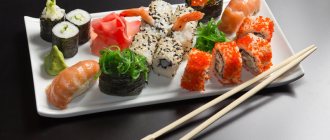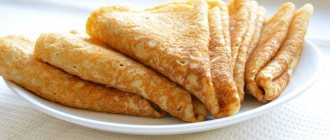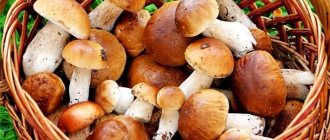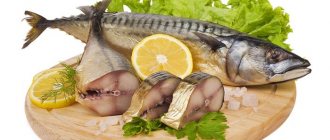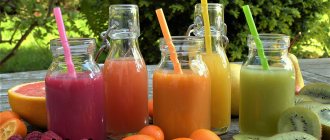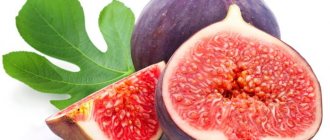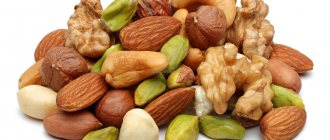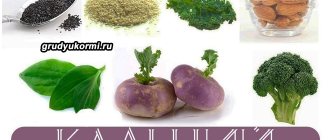The nutrition of the newborn’s mother determines what vitamins and microelements the baby will receive along with mother’s milk. A proper diet is also necessary to stimulate lactation: you don’t need to severely limit yourself in food or go on strict diets, since such drastic measures can cause milk to disappear. Meals should be balanced, and you also need to remember about the drinking regime. After reading this article, you will know exactly what a nursing mother can eat to benefit her baby.
What foods should you avoid?
When thinking through your diet for the first months after childbirth, you need to pay attention to:
- quality of products;
- seasonal fruits, berries and vegetables;
- variety of diet - every day you need to consume enough proteins, fats and carbohydrates;
- time required to prepare dishes.
When a child is born, the young mother has little free time and she has to change her daily routine. It will become easier over time, but even in the first months it is very important to provide yourself with a nutritious diet.
During breastfeeding, doctors recommend avoiding eating foods that can cause an allergic reaction and increased gas production - small children are prone to colic. And although it has not been scientifically proven whether the mother’s diet affects their appearance, it is better not to put the baby at risk again. Bloating can occur due to white cabbage, lentils, pearl barley and all legumes. It is better to exclude them from the diet for the first 2-3 months, so as not to increase the risk of gas formation in the child.
An allergic reaction can manifest itself in the form of a rash, itching, redness and dry skin. Allergens that a nursing mother should not eat are:
- exotic fruits - mango, lychee, passion fruit, etc.;
- honey is a strong allergen even in small quantities;
- nuts - peanuts, cashews, almonds, hazelnuts and others;
- fatty red fish, seafood - can be dangerous due to insufficient heat treatment;
- chips, canned food, soda - contain many chemicals that are not beneficial to the body;
- half-baked or raw eggs - there is a risk of salmonellosis infection;
- products with dyes and flavor enhancers;
- coffee has a stimulating effect on the nervous system.
It is also necessary to monitor the baby’s reaction when introducing new foods into the diet.
At first, it is recommended to cook yourself or ask loved ones, avoiding cafes and deliveries. For example, sushi can be unhealthy due to fish that has not been cooked. In addition, many establishments do not always comply with sanitary standards. But still, if you want to please yourself with ready-made food, it is better to go to trusted establishments that you and your friends regularly visit.
Can a nursing mother include berries in her diet?
In some cases, these products irritate the intestines and provoke food allergies, so you should follow the rules for including berries in your diet:
- Overripe or green fruits are not healthy; it is better to avoid eating them.
- Blackberries and other berries are eaten in moderation, even if the body reacts normally to them.
- Green, white and yellow fruits are less likely to cause allergies, so it’s better to start with them.
- When introducing berries into the diet, try no more than 2-3 fruits of one type along with the main meal. The decision about whether berries are allowed is made only after this.
- After the child is 3 months old, black currants, blackberries, raspberries, and cranberries are introduced into the menu. Strawberries are the last to be tried; they cause allergies more often than others.
- If the reaction does not appear, then leave the product and later increase its amount.
- If an allergy occurs, exclude berries from your diet and put off the idea of adding new products for at least a month.
- Include different varieties of berries in the menu one at a time to find out exactly what the reaction is.
- Berries from the garden can be eaten simply by rinsing them under cold water, and it is better to scald purchased products with boiling water first.
If you have an allergy to cloudberries or other berries that does not go away for several days, you should consult a doctor.
Mom's nutrition: the first weeks
For the first 3-7 days that the new mother will spend in the maternity hospital, she will be able to eat simple meals. In hospitals, the diet for women in labor is usually formulated in such a way as not to provoke allergic reactions. But in some state maternity hospitals you can find pea soups, milk, cabbage salads and other foods on the menu that can be harmful. In this case, ask your family to bring you healthy home-cooked food.
When preparing a diet for a nursing mother for the first weeks after childbirth, pay attention to the following recommendations:
- Don't cook complicated recipes. The simpler the dishes, the better. At first, you should avoid multi-ingredient dishes, giving preference to cereals, omelettes, fermented milk products, fish or steamed meat.
- Keep in mind that among vegetables, green foods (cucumbers, broccoli, zucchini, etc.) are considered less allergenic.
- Try to establish a diet and do not skip meals. At the same time, no matter how much you want to, it is better to refuse food so as not to overload the digestive system.
- Don't over-salt your dishes. Salt retains water in the body, so it can cause swelling.
- Try to move. For the gastrointestinal tract to function normally, a nursing mother needs to spend time actively. Even a 2-hour walk with a stroller will be enough.
There is no need to count calories, since the body spends a lot of energy producing milk. If you stick to proper nutrition, you will quickly return to your pre-pregnancy shape.
The first year of a baby's life is very difficult for the mother. Sleepless nights, changes in daily routine and other worries require great endurance from the body. Eating well will help you cope with this and feel strong even after a short sleep.
What foods should you limit or avoid eating while breastfeeding?
During pregnancy, you were very careful in your diet and you had to limit yourself in some ways. You may have expected that with the birth of your baby, all the “prohibitions” will be lifted, but there are still some foods and drinks that you should limit or avoid while breastfeeding.
Seafood High in Mercury
Fish is an important part of a healthy diet as it is rich in protein and omega-3 fatty acids. But some types of fish contain large amounts of mercury, which is dangerous to the nervous system of infants and young children. Therefore, you should not eat the following species: shark, swordfish, king mackerel and tilefish. What kind of fish can you eat? Here are the types of seafood that are safe for a nursing mother to eat: canned tuna (no more than 150 g of albacore tuna per week, as it contains more mercury), shrimp, salmon, pollock and catfish. If you enjoy fish that are caught where you live, check your local guidelines for safe eating. For more information about mercury levels in different types of fish, read the recommendations from Rospotrebnadzor.
Drinking alcohol while breastfeeding
Long-term and regular consumption of alcohol can reduce breast milk production and negatively affect the baby's health. Alcohol also changes the taste of milk, and the baby may refuse to breastfeed and be capricious. Therefore, it is better to avoid drinking alcohol while breastfeeding. If you sometimes want to drink alcohol, limit yourself to one drink. You can drink it after feeding/expressing milk and wait at least two hours before your next feeding/expressing - that's how long it takes for the alcohol to break down in your body.
Drinking caffeinated drinks while breastfeeding
Typically, while breastfeeding, you can drink up to three caffeine-containing drinks a day without harming your baby. If this amount is exceeded, the baby may react with anxiety and irritability. Keep in mind that caffeine is not only found in coffee. Caffeine is found in some types of tea, carbonated drinks, and chocolate. Keep this in mind when calculating your daily caffeine intake.
Drinking drinks high in sugar
Try to limit or eliminate high-sugar drinks, including soft drinks, juice and iced tea. Instead, drink plenty of water.
What can nursing mothers eat from 0 to 3 months?
Despite many restrictions, breakfasts, lunches and dinners for a nursing woman can be varied and tasty. In addition, such nutrition helps to get rid of extra pounds gained during pregnancy. But you won’t have to go hungry and constantly think about delicious food if you know what a nursing mother can eat.
Delicious and healthy breakfasts while breastfeeding:
- Omelette with vegetables. If you're short on time, make it in the microwave. All ingredients can be mixed in 2 minutes, and the omelette will take another 5 minutes. A hearty and healthy protein breakfast is prepared very quickly.
- Toast with cheese, chicken and fresh vegetables. It is best to take whole grain bread, it is healthier for the body. It takes 10-15 minutes to prepare such toasts, and the pleasant aftertaste will remain for the whole day.
- Oatmeal with milk or water. It is not recommended to add nuts or dried fruits, but you can get by with fresh fruits. For example, add a banana. The porridge will be sweeter and remain just as healthy.
- Oatmeal pancake with filling. This dish has become popular in recent years with the advent of nutrition blogs on social networks. As a filling you can use cottage cheese with vegetables, homemade jam and much more. This oatmeal pancake can be made both sweet and salty.
For a snack, you can eat natural yogurt, a slice of homemade pie, seasonal berries or fruits (if your baby does not have a reaction to them).
At any time of the day, a nursing mother can eat the following foods:
- Various cereals. You can include not only oatmeal, but also buckwheat and corn porridge in your diet. They do not affect gas formation and contain many nutrients.
- Lean fish. Look out for pollock, cod, carp or narima. This white fish contains almost no allergens and is well absorbed by the body. The method of preparing fish is also of great importance for the diet during breastfeeding: it can be boiled, steamed or baked in the oven.
- Meat. In the first months after the birth of the baby, it is better to give preference to chicken, turkey and rabbit. In the future, you can also introduce beef and pork into the diet.
- Vegetables. And although some foods need to be avoided (for example, white cabbage), the choice remains large. You can eat broccoli, cauliflower, potatoes, cucumbers, zucchini, asparagus and much more fresh or after heat treatment. Also try adding tomatoes and bell peppers to your dishes: they rarely cause an allergic reaction.
- Fruits and berries. You need to start with bananas and baked apples (fresh apples can lead to problems in the baby’s digestive system). But you shouldn’t be afraid of other fruits, as they contain many vitamins and beneficial elements. You need to start with small portions and carefully monitor whether the child has a reaction.
- Soups. From the first days after childbirth, you can eat soups with vegetables and lean meat. You can also introduce puree soups into your diet.
- Dairy products. The body can react ambiguously to whole milk, but there is no need to give up kefir, cottage cheese, cheeses and other products.
- Rye bread and bran bread. You can use it on toast for breakfast or have a few pieces with soup.
What and how to eat for a nursing mother: basic tips
- Don't skip meals. For normal functioning of the digestive system, you need to eat at least 3 times a day. With snacks, this number can reach up to six.
- Set aside at least half an hour a day to prepare healthy food. Of course, it’s difficult to find time with a baby, but delicious food will have a positive effect not only on your well-being, but also on your mood.
- New foods should be introduced gradually, one at a time. This is necessary in order to be able to monitor the baby’s reaction and, if necessary, eliminate the allergen.
- The serving size of a new product can be increased every 2-3 days.
In the first 3 months after birth, when the baby’s body can most clearly react to the mother’s nutrition, it is important to think about health. Preventing problems associated with allergic reactions is much easier than treating them in the future.
A nursing mother of a newborn can eat a lot if she chooses foods wisely and the way they are prepared. At first, it is better to avoid fried foods or cook them in a non-stick frying pan without using oil. When the baby is one month old, the nursing mother will be able to eat more foods. The main rule: you need to introduce everything new gradually (1 product at a time) and in small quantities.
To ensure that the first months after the birth of the baby pass with maximum comfort, it is important to buy everything necessary for a young mother. Such things include, for example, a milk snood for feeding, with which you can cover your breasts and feed your baby even in a crowded place. The products presented in the Proud Mom catalog are very convenient and practical. They can be worn like regular scarves and protect your neck, face and chest from the wind. Milk snoods are made of natural cotton with the addition of elastane, so they are pleasant to the skin and do not cause irritation.
Plan your diet in such a way as to lose weight comfortably and without harm to your baby. Enjoy every meal, love your body, and be sure to buy things that will make breastfeeding easier. The Russian brand Proud Mom will be happy to help you with this.
Do no harm: how to avoid allergies and not provoke colic
Before the baby turns one month old, we select fruits by elimination:
- By color: remove red and orange fruits from the diet. The pigment that gives them their bright color provokes allergic skin reactions - rashes, spots. An exception may be a red apple, if you first remove the skin.
- By type: exclude citrus fruits. Their high vitamin C content makes them strong allergens. You can only add a small slice of lemon to your tea.
- According to the degree of impact on the intestinal microflora: grapes, plums, some varieties of pears. They cause bloating and flatulence. You can also expect a surprise from plums in the form of a strong laxative effect, which is completely undesirable for a small organism (but during constipation in a mother or baby, plum can just come to the rescue).
Essential article: What to eat while breastfeeding
Down with the exotic, let's eat our own
Fragrant exotic fruits (papaya, mango, pineapple) and the citrus fruits already mentioned above are not harmless due to their foreignness to our region. Example: in sunny Spain, oranges and tangerines are in first place in the diet of mothers and in complementary feeding of children. For them, this is a lesser allergen than the same cereals containing gluten. But for Russia, especially central Russia, this is still exotic and a certain risk. The exception is hypoallergenic bananas, which Russians have enjoyed eating since childhood.
The benefits of an apple from your own garden, in comparison with an exotic fruit arriving from overseas, are obvious: the first option is much more expedient and nutritious.
It has been proven that the human body assimilates fruits that are characteristic of the specific region in which a person lives faster and better.
But it is wrong to exclude “non-native” fruits from the diet entirely. It is through mother's milk that the child becomes acquainted with all food components. And subsequently, during the period of feeding the baby, in particular with fruits, it will be much easier. The child will already get used to the components of various fruits previously eaten by the mother and will accept them without unwanted reactions, and the mother also gives away with the milk the protective mechanisms that she has already formed against potential allergens.
Exotic fruits, by definition, are imported and the conditions for their transportation are far from ideal. Not a single fruit or berry can survive a long journey if it is not first treated with chemicals for better storage. And if you dare to bite into a foreign forbidden fruit, then do it little by little and not in the first month of the baby’s life. It is better to remove the peel and first wash the fruit itself in a baking soda solution.
Seasonal fruits - the choice of a caring mother
Showcases and shelves of supermarkets and markets delight our eyes with a variety of fruits all year round. A nursing mother should be on alert and think: where did the juicy blueberries or alluring raspberries come from in January? On the box we will find the answer - Chile (or some other distant “banana” republic). We mentioned the harmful costs of transporting overseas fruits and berries above. And it is unpredictable what effect the chemical compounds penetrating into breast milk will have on the baby’s fragile body.
As for seasonality, it is worth listening to the opinion of experts: most fruits have a clear ripening time frame and in “their” season they contain more vitamins and nutrients. The taste of fruits during natural ripening is also better.
Here is a list of seasonal fruits and berries that are very useful for breastfeeding:
- Cherry (white, yellow), from May to August. You can use it from the first day.
- Currants (red, black). It contains a lot of vitamin C, which is why it is a potential allergen. After the third month, you can introduce fruit drinks based on it, and then the berries themselves.
- Nectarines, peaches, mid-July-September. They are rich in silicon, which is why they improve metabolic processes. You can try it at first, the main thing is to monitor the child’s reaction.
- Figs, from June to September. It has an antipyretic agent, increases the body's resistance to disease, which is important during breastfeeding, when nursing mothers have a limited list of medicines in reserve.
- Persimmon, from October to December. Excellently increases hemoglobin and saturates with iodine. It is better to introduce fruit into the diet when breastfeeding after three months, but this fruit is not suitable for complementary feeding: it is fraught with intestinal obstruction in the baby.
- Pomegranate. From September to the end of December. Pomegranate juice (diluted) in moderation will only enhance your mother’s diet. It is better to abstain for up to a month, and then try to administer it; a single portion should be no more than 30 ml.
When the soul knows its limits
New fruits (also juices and fruit drinks) should be introduced into the mother’s diet gradually, one new product at a time over 3 days. It is advisable to eat a small slice in the first half of the day; the baby’s reaction (if any) will appear in the evening. If a suspicious reaction (spots or rashes on the skin, peeling, dry skin) does not take long to appear, then you should exclude the use of this fruit for a period of one month, but then try again. The baby's digestive tract matures gradually and it becomes easier for him to get used to a new product. If everything is fine, we eat calmly, the average daily portion per breastfeeding for fruit is 200-300 grams.
It is important to take into account your own individual intolerance: if before or during pregnancy some fruit caused rejection, you should not stuff it now, even if it is very healthy.
You should understand: your baby is unique, his reaction is unpredictable. Some children calmly “digest” strawberries, while others get sprinkled and bloated by the neutral pear. But it is worth adhering to general recommendations, because severe allergic reactions in early childhood are the cause of more complex diseases (atopic dermatitis, allergic asthma). Therefore, you need to clearly separate which fruits are allowed and which are not.
So, as a conclusion, below are lists of allowed and not recommended fruits during breastfeeding.
Forbidden fruits: which ones should not be eaten during breastfeeding
Use with caution
What fruits should not be used during lactation? For most newborns, danger comes from fruits that are potential allergens [1], as well as those to which allergic reactions or individual intolerance have been noticed in one of the baby’s parents (father or mother).
Side effects (due to chemical processing) can be caused by berries purchased out of season. You should be careful when consuming exotic fruits, especially those that your mother has never consumed before (the reaction to the product is unknown).
Rules for entering the menu
- The first principle by which you should choose both fruits and vegetables is that they grow in their “native” region. They are not transported over long distances and are not sprayed with chemicals to endure long-term transportation, which means they are less dangerous for children.
- If “our” fruits appear on store shelves out of season, they are imported, and they also contain harmful chemicals.
- After the birth of the baby, mothers should introduce fruits into their diet one at a time and in small quantities. Otherwise, it will be difficult to determine which product caused the baby's allergic rashes or tummy pain.
- A baby's digestive system matures gradually. And if a newborn’s body reacted unfavorably, for example, to a pear, this does not mean that its fruits will be just as poorly tolerated in a month or two.
- Heat treatment significantly depletes the vitamin and mineral composition. Therefore, it is advisable to consume fruits raw or in the form of freshly squeezed juices. The exception is oven-baked apples.
